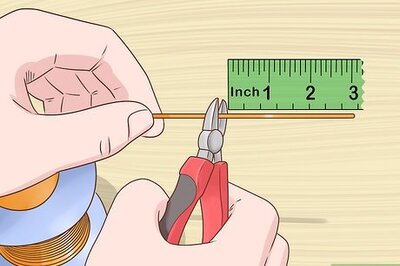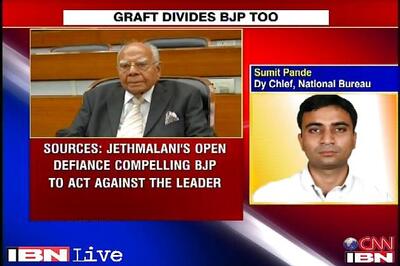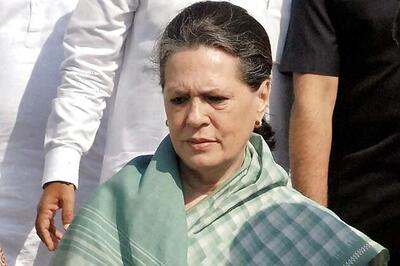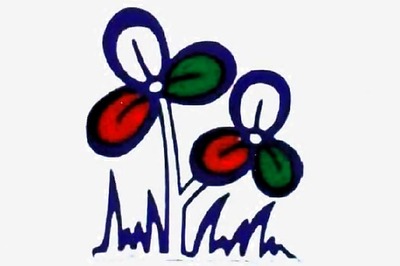
views
Nikhita Gandhi is known for belting out chartbuster songs like Qafirana from Sushant Singh Rajput and Sara Ali Khan starrer Kedarnath, Barbaadiyan from Sunny Kaushal and Radhika Madan starrer Tadap and Duniya Farzi from Thank You For Coming. Apart from a thriving mainstream career, Nikhita Gandhi likes to dabble in genres as an independent artist. Her recent collaboration with Disha Patani for the song ‘Kyun Karu Fikar’ went viral in no time. It not only marked Disha’s debut as a director of the music video but was also packed with peppy, energetic vibes.
In an exclusive chat with News18 Showsha, Nikhita Gandhi got candid about creating the song, teaming up with Disha Patani, her catalogue of indie music and more.
Here are the excerpts:
‘Kyun Karu Fikar’ is a very breezy and relaxing song but at the same time, it has the energy and verve that’ll make people groove to it. It’s an interesting composition. Tell me, how did you go about imbibing this track, from its inception to giving it a final shape? And what was your journey with it?
I instantaneously connected with the song. It was so fresh and such a fun arrangement and composition. I enjoyed what I heard and the moment I heard it, I knew I wanted to sing it. And I’m so happy that Vaibhav thought of me as the voice of this song.
The theme and emotions behind the song is to not worry about what is about to come. It’s about letting go and living in the moment. How did all these emotions form a building block for this track?
I think we take life very seriously sometimes and we take goals and journeys and so many more things so seriously, we stress ourselves out and it’s really important to have constant reminders that it’s okay and just enjoy. Look around and enjoy and just be you. Don’t care about the results. I’ve always been the kind of person growing up, who didn’t care about the results. I like doing things and experiencing things and that motto resonates with me in general. Honestly, I’m happy to sing a hundred songs in this theme.
Kyu Karu Fikar is also truly a collaborative effort. While you have lent vocals, Vaibhav Pani composed it, and Vayu wrote it. Disha Patani directed it and was featured in it. How was the collaborative experience and what were your equations with everyone who was on board for this song?
This is the most collaborative single that I’ve been a part of because when we recorded the song, Vaibhav, Vayu, Disha and I, all 4 of us were in the studio together recording the song. It was really fun because everybody’s inputs were given and it was literally a collaborative effort and you literally cannot get to do a lot of that. I mean, usually, somebody or the other isn’t there. So it’s fun that every single contributor was there for this song.
You have an interesting catalogue of indie songs under your belt. And each one of them is different from one another. For example, Barse Badariya is a proper bandish-themed song, whereas Pitch Black Dark is an English pop song. In that context, the versatility that you bring about with your music, what role has it played in your overall identity?
Well, first of all, thank you for observing all the independent music that I’ve released. I think humans are very complex. Commercially speaking as an artist, it is a good idea to be in one world, but I don’t let those rules apply to my independent journey. I feel that expressing oneself can come in so many colours, so many shades, so many different emotions that we feel in our lives in a day, sometimes even in the same moment. So, I love exploring through the music that I write and compose on my own. Barse Badaliya was a Bhajan that was stuck in my mind. I’ve known Bhajan since I was a kid. I’ve always been in love with that song, that composition. And I always knew that I wanted to do something about it. I wanted to give an ode to the Bhajan I heard while growing up. It just came to me. I think that is one of the quickest compositions that I’ve done. I made that song in 10-15mins. It was a very cathartic song for me because it resonated with a lot of emotions I had towards an incident. We are all complex beings. It comes out as versatility, but I think it’s just different emotions that a single human being can feel at any given time.
You completed 10 years in the playback scene this year. So essentially, you have seen this industry evolve drastically? What was your most favourite musical trend and your least favourite? And whether you are content with the kind of music that’s been coming out commercially?
Oh, that’s true. I have completed 10 years this year. Come to think of it, my first song was Ladio from the film I. And honestly, I was very shocked to be somebody who was singing playback. I never thought my voice category, the kind of texture that I have, would ever have a foothold or an identity in the film industry. I always associated it with a certain kind of sound. But I saw so much change in my college years. And so much acceptance towards new voice categories and different kinds of tones and textures. I think that’s how my musical journey began. With every year I saw a change and the industry also shifted to more non-film music with the addition of OTT. There’s been quite a dilution of film in general. In terms of music in films. By dilution, I don’t say it is a bad thing. It’s become more realistic, which has given birth to a lot of non-film music and artists have become artists and not just playback personalities which is amazing. And that is my favourite part about the industry and how it is evolving. The only thing that maybe isn’t my favourite musical trend or evolution is that since everyone has access to everything, we tend to love a lot of things that keep coming. There’s a very thin line between mediocrity and simplicity. There’s always a human tendency to confuse the two. And I think that for me is a musical trend that I don’t personally love. But once again, that is superseded by the kind of change that we are seeing nowadays and I absolutely dig it.
I’ve noticed that you are a collaborative person and you love to collaborate with your peers like Shashwat Singh and Badshah from time to time. How do you approach these collaborations creatively and how do you resolve creative differences and conflicts about a track you might be working on? What’s your most memorable collaboration and why?
Oh yes. Absolutely. I love working with other singers, musicians, composers, and writers. I love it. Think it’s a very uni-dimensional perspective when you’re making music yourself. Sometimes it can be crazy, sometimes you can feel frustrated with the process when you’re alone in it. But when you are collaborating with someone, there’s this mixture of energies and, even if there’s conflict, it always turns out to be a challenge and that challenge is such a beautiful part of making music. So yeah. I’ve loved working with Shashwat. I’ve been making music with him for several years. Even collaborating with Badshah, even if the music is primarily his, it has been so much fun. He lets me be me. And he gives me the kind of space that an artist wants to be able to give a song their flavour. And I love that about most of the musicians that I’ve had the opportunity to work with. And honestly, conflicts are just puzzles that you have to solve. I remember when I was writing with a songwriter, we made this really beautiful track, we kept going back and forth with different composition ideas because we had made the melody together. So, I love that. The other person sometimes sees what you don’t and that can be fun. As for most favourite collaborations, there are so many. I think it is the people that you collaborate with that matter more than the actual song.
In this day and age of social media, people want to go viral fast with their music. And for that, they use certain gimmicks to catch the attention of the listeners. And factors like ‘this hook or this beat has the potential to go viral’ tend to overpower the innate, creative instincts behind creating raw, original music. Do you also go through a similar dilemma, where there is an internal tug-o-war behind moulding a song or a tune in a particular way to go viral or following your innate instincts, without pondering on the thought that it’ll go viral?
Oh yes, absolutely. This dilemma is constant and the artist in me is always trying to fight the practical person in me. Don’t get me wrong, I love trying to crack something, viral or contagious, something that sticks around, I’ve always tried to find that sweet spot that is the marriage of something that’s extremely catchy but at the same time having great musicality. Ticking all those boxes. And it’s really hard to come up with music like that. And it’s not always the best thing to even have these rules in mind. I kind of end up doing both sometimes. I just write without caring about its sound or composition or how it’s going to be perceived, etc. And sometimes I do have the intention of making something super relatable. So, it is a constant internal war for sure. And the only way to do it is maybe alternate the songs. But yes, I try not to let one supersede the other
This year you have given several chartbuster songs but I particularly like the duo of you and Arijit Singh, since I feel you both compliment each other vocally because of your distinctive and husky voices. What is it like singing with him?
I’m glad to hear that you enjoy our collaborations! Singing with Arijit Singh is truly an incredible experience. His voice has a depth and emotional resonance that is unmatched, and it’s an absolute pleasure to harmonize with him. Our distinctive and husky voices do complement each other well, creating a unique blend of tones that adds a special quality to the songs we worked on together.
That also brings me to the song ‘Qaafirana’ from Kedarnath. It’ll be five years in December and that song holds a special place in everyone’s heart. What can you recall about recording that song? Since that song itself became the soul of the love story between Sushant Singh Rajput and Sara Ali Khan’s character in the film? What kind of reception did you get from them?
Qaafirana is one of the most special songs that I have performed. The funny thing is, I think it’s one of the first few songs that I sang for Amit Trivedi, DhyaanChand was the first one and then, Qaafirana. I recorded it long before it was released. It was very interesting. I have a very funny story actually, related to the song. I didn’t know that the song was about to be released. I started getting tagged by Zee, the label, the production house in their promotional messages and tweets and stuff. That is when I realized that there is a song called Qaafirana, that I’ve sung, That’s releasing. Right before the song was finalized, I was being called again to redub a particular patch of the song and when I went to the studio, I didn’t even remember the song, since it was recorded so long ago. I went to the studio, and when I heard it again, that’s when I recalled recording it. In the part that I had to redub, the lyrics had changed. I remember asking Amit sir at the time if he was still arranging the song because it sounded empty. He said that that is how it is going to be and I remember being so scared in that moment, because you know, it’s so raw and there’s so much of me, in that moment, in that song. And I was very scared because it’s a very high scale, it was a very different zone for me. I was really scared of everyone’s reaction to the song. But when it was released, I felt that the most iconic part of the song was the sections where there was just my voice. I am so grateful that the audience connected with the song so well. And in context with the film and the actors, I feel that it’s a really special song in my discography.
How do you balance between independent and commercial music? How do you prioritise? And what do you do when it gets overwhelming for you?
I just keep trying to make music. Because commercial music is something that is out of your control, most of the time. Sometimes you record a song and it’s released years and years later. So I feel that my independent music is what keeps my daily life going. Recoding, Ideas, scratches, etc. On a day when I’m free, I just try to make music, even if I don’t like it, even if I sit in the studio for 4-5 hours and completely hate what I made. I love keeping that process going, because it’s important to keep exploring your musicality, you keep evolving as an artist like that. And that is a very important process for me. It can be extremely overwhelming at times, I have days where I hate what I’ve made and feel very stuck and useless. That is a very common feeling, but I think, It’s just that internal war where you have to fight yourself constantly, challenge your frustrations and move on with it. That’s how the process usually is.
Finally, what are some of your upcoming tracks that people should be looking forward to? And what kind of collaborations will you be exploring in future?
I am currently working on a Durga Puja song because I have never released a Pujo Song and being a Kolkata girl, and someone who’s spent a huge part of her creative life performing in Pandals during Durga Pooja, it has become a really special festival for me. I wanted to do something this year to commemorate that, to make a song that celebrates that part of my journey. So I am working on that currently and I am very excited to share it with everyone. It is mostly going to drop on the 15th of October. Apart from that, there’s an English record coming up very soon and many more kickass collaborations that are still in a very nascent stage.




















Comments
0 comment